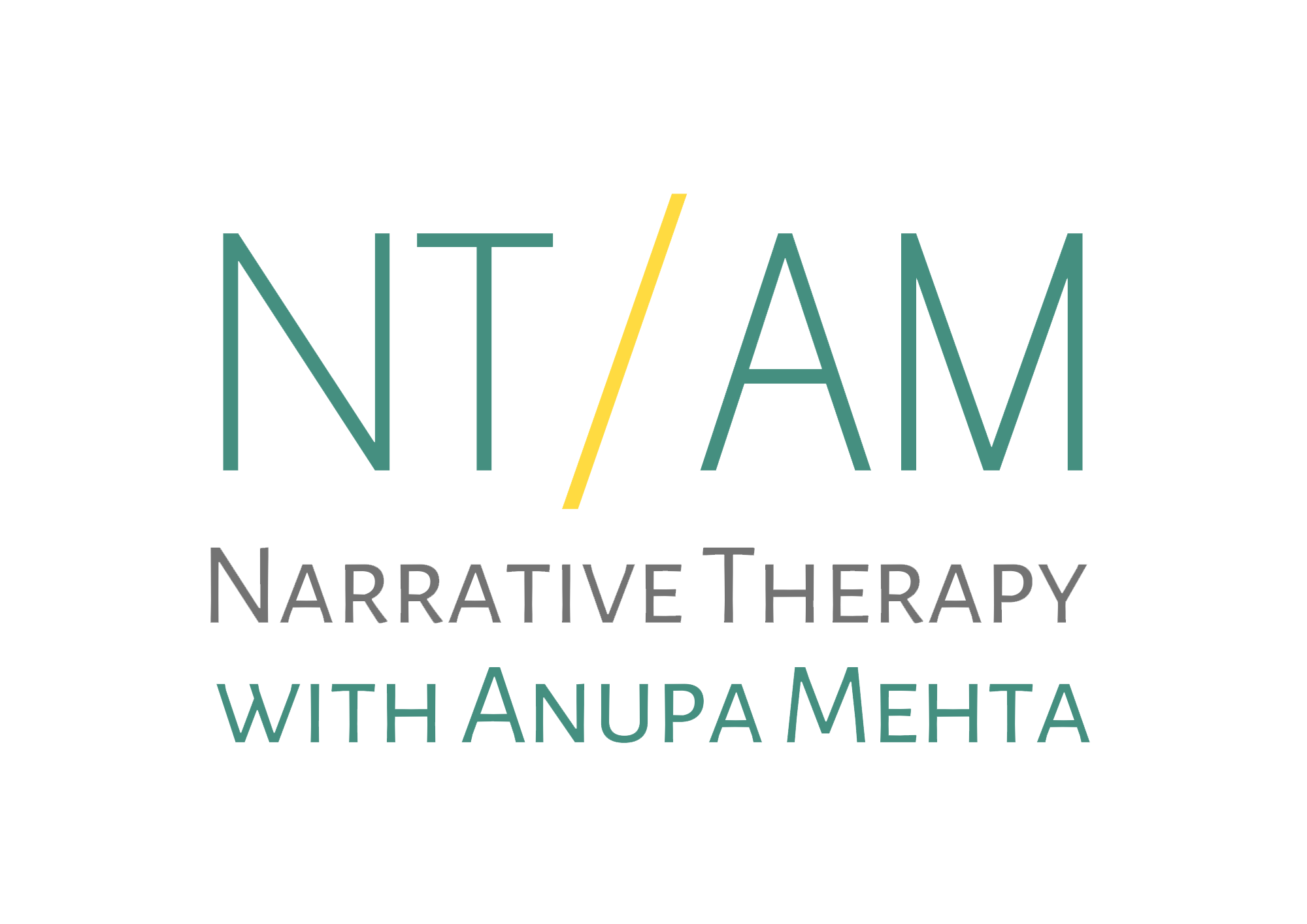Commonly-asked questions about narrative approaches to therapy
-
What are narrative approaches?
Narrative approaches to counselling centre people as experts in their own lives, and view problems as separate from people. Narrative approaches assume that people have many skills, competencies, beliefs, values, commitments, and abilities that will assist them to reduce the influence of problems in their lives. The word 'narrative' refers to the emphasis that is placed upon the stories of people's lives and the differences that can be made through particular tellings and retellings of these stories. Narrative approaches involve ways of understanding the stories of people's lives, and ways of re-authoring these stories in collaboration between the therapist/community worker and the people whose lives are being discussed. It is a way of working that is interested in history, the broader context that is affecting people's lives, and the ethics or politics of this work.
-
Is there only one form of narrative practice?
No, not only is there diversity within the field of family therapy, it seems relevant to note that there is also a considerable variety in the ways in which people have taken up the narrative metaphor in therapy. Some writers have explored the potential for postmodern ideas to influence conversations, while others have explored poststructuralist ideas. Some others are now referring to themselves as discursive practitioners (sharing much in common with critical psychology).
-
What are some of the ways of thinking and traditions that narrative approaches are linked to?
There have been, and continue to be, a great range of traditions with which narrative approaches are linked. Various narrative practices are linked to developments within family therapy traditions. There have also been many alternative sources that have informed narrative practices – from anthropology, literary theory, poststructuralist philosophy, and feminist writings and explorations. More recently, work in partnership with Indigenous Australian communities has contributed to the development of narrative ways of working in community gatherings. Many narrative ideas and practices have been developed through conversations with those who have consulted narrative therapists/community workers.
-
Who is engaged with narrative ideas and practices?
People from a wide range of professions and perspectives are engaging with narrative ideas – from family therapists, community workers, teachers and school counsellors, academics, anthropologists, community cultural development workers, and film and video documentary makers. As these engagements occur, they lead to further creative developments in narrative thinking and practices. Many disciplines (anthropology, literary theory, cultural studies, philosophy, the arts) have been engaging for some years with postmodern and poststructuralist ideas. As narrative approaches are also significantly informed by poststructuralist thinking, this is leading to many generative connections and conversations across these fields of thought. As mentioned above, the people and communities with whom narrative therapists/community workers are working are also engaged in narrative ideas in ways that shape their future directions.
-
Are narrative ideas only able to be used with people choosing to come voluntarily to counselling or community projects? What about involuntary clients?
Many of the ways of working that are referred to as narrative approaches originated from work with people who had no choice but to attend therapy (involuntary clients), who were living in situations in which they had little choice over aspects of their lives (as in locked psychiatric wards), or who initially were unwilling to join a conversation with a worker (people who were not speaking to anyone, who were living reclusive lifestyles). Narrative practices derived from a desire to find ethical and effective ways of working in these situations. Many workers are continually refining ways of working in such contexts.
-
Can you only use narrative practices with people who are eloquent and articulate?
Narrative therapy/community work always involves conveying meaning and the telling of stories, but the ways in which this occurs differ enormously depending upon the people involved. Much of the work that is now referred to as 'narrative approaches' originated in, and continues to involve work with, very young children. Much of the work also had its origins in conversations with people who had great restrictions upon their lives and ways of expressing themselves (for example, those living within institutions). There is a great diversity of ways in which stories can be told and conveyed that do not require what is generally considered to be eloquence or literacy, or for that matter any formal education. People try to make themselves understood in a great variety of ways. It is the practitioner's role to engage with the experience and meaning of the person who is consulting them in whichever way or shape the expressions of this meaning occurs.
-
Are narrative practices transferable across cultures?
This question can really only be answered by people from non-dominant cultures. Over many years, therapists and community workers have been consistently challenged to recognise that due to the significant distinctions and differences between cultures, any form of practice cannot be simply transferred from one community to another. Just as with any way of thinking or working, there will be many aspects of narrative practices that cannot simply be applied from one culture to another. Differences across cultures (such as whether the culture is informed by oral or written traditions, whether or not direct questions are appropriate, variation in ideas about family and community life, etc.) mean that great care needs to be taken so as to ensure that dominant cultural ideas are not enforced upon others. Ideally, workers would be of the same cultural background as the people consulting them. Ways of ensuring that work is accountable to the people, cultures, and communities whose lives are most affected by it is very important. A diversity of people from many different cultures and communities have engaged and are engaging with narrative practices. This is occurring in different ways in different places. The ways in which these people and communities engage with narrative practices will, in turn, creatively influence the direction of narrative therapy/community work.
-
Are narrative practitioners anti-medication
Put simply, no. This is a question commonly asked of family therapy, and narrative practitioners in particular. Narrative approaches are associated with a clear questioning and challenge of pathologising practices – these practices are common within all disciplines of the health professions – social work, nursing, psychology, psychiatry, etc. Narrative approaches question pathologising practices, refrain from locating the problem in the person and instead locate the problems in people's lives in their broader social context. This does not mean, however, that narrative practitioners are opposed to the use of anti-psychotic medication in any general way. In some circumstances, medication can contribute enormously to people's lives, whereas in other circumstances, it can be used in ways that are primarily for the purposes of social control. In circumstances where medication is involved, narrative practitioners are interested in exploring with people a range of questions to assist in clarifying what is and what is not helpful in relation to the medication.
-
Sometimes it is said that the writing about narrative therapy/community work is inaccessible and difficult to understand. Is this true?
There is an enormous diversity of written material available about narrative therapy and community work. Much of this material is very easy-to-read and accessible to those with little familiarity with this subject. There are many papers written by a great diversity of authors all of whom are experimenting with and engaging with narrative ideas in their own contexts. Other writings, which articulate the thinking that informs narrative practice, sometimes require more effort to read as these writings grapple with complex issues. These writings deliberately use language in very precise ways in order to clearly articulate the distinctions in thought that inform narrative therapy. To use other language in these situations would perhaps make the passages easier to read, but would mean they would lose their precision.
For appointments, call +91 9892331257 or
email at workshopswithanupa@gmail.com.

